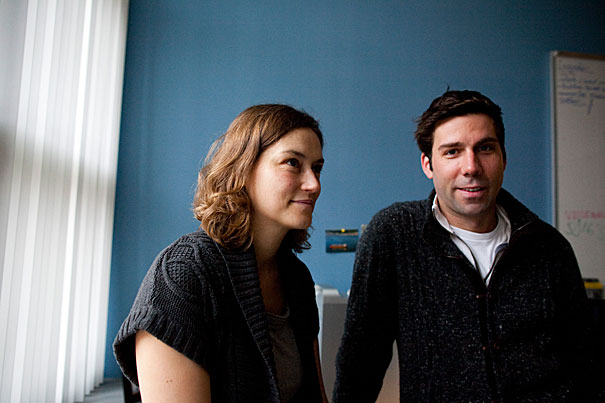Health
-
Lin Test
text with link. This is a quiz. Some text Name Name Quo modo autem philosophus loquitur? Tecum optime, deinde etiam cum mediocri amico. Invidiosum nomen est, infame, suspectum. Name Name…
-

Gender-affirming care is rare, study says
Fewer than 1 in 1,000 transgender youth receive hormones or puberty blockers

-

Nature offers novel approach to oral wound care
Slug’s sticky mucus inspiration behind adhesive hydrogel that can seal wounds in wet environment

-

Time for a rethink of colonoscopy guidelines?
Change informed by new findings would help specialists focus on those most at risk, researcher says

-

Should pharmacists be moral gatekeepers?
‘The problem is not opioids,’ says author of ‘Policing Patients’ — it’s overdose, pain
-

The deadly habit we can’t quite kick
Actions by tobacco companies worry researcher even amid ‘dramatic decrease’ in smoking among young Americans

-
Placebos work — even without deception
Patients who were knowingly given placebos for irritable bowel syndrome experienced significant symptom relief when compared with controls.

-
Seeing double
By comparing the DNA of modern elephants from Africa and Asia to DNA extracted from two extinct species, the woolly mammoth and the mastodon, researchers have concluded that Africa has two — not one — species of elephant. Now that we know the forest and savanna elephants are two very different animals, the forest elephant should become a bigger priority for conservation purposes.

-
The face looks familiar
People’s ability to recognize and remember faces peaks at ages 30 to 34, about a decade later than most other mental abilities, a new study says.

-
Dairy fat may help not harm
Scientists at the Harvard School of Public Health and collaborators from other institutions have identified a natural substance in dairy fat that may substantially reduce the risk of type 2 diabetes.

-
Female chimps treat sticks as dolls
Researchers at Harvard University and Bates College say female chimpanzees appear to treat sticks as dolls, carrying them around until they have offspring of their own. Young males engage in such behavior much less frequently.

-
The nose knows
Harvard researchers have shed light on how the sense of smell works to induce behavior, linking patterns of electrical spikes in the brain to behavior in laboratory animals.

-
Sick to death
Harvard School of Public Health researchers are mounting a major study of chronic disease in four African nations, which organizers hope will provide a foundation for understanding and treating chronic ailments like heart disease, diabetes, and cancer.
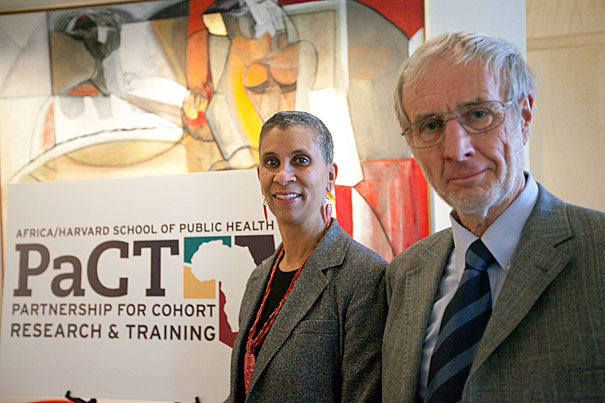
-
Across 160 years, Darwin speaks
The discovery of an unknown 1848 letter by the great naturalist sheds light on a murky part of his life, and on a friendship that eventually went awry.

-
Perspectives on global health
Media mogul Ted Turner and Harvard School of Public Health Dean Julio Frenk kicked off a new Internet-focused communication effort by discussing problems in global health.
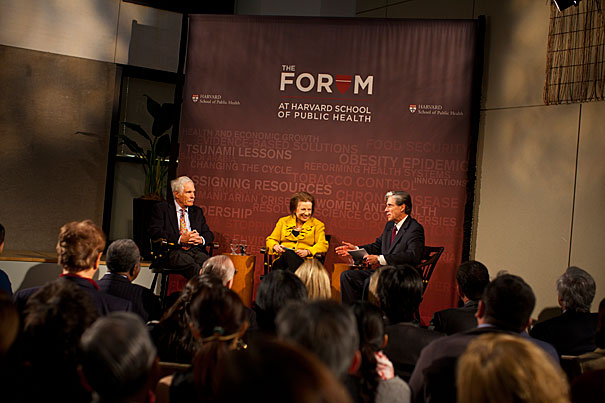
-
Cholera strain tied to South Asia
A team of researchers has determined that the strain of cholera erupting in Haiti matches bacterial samples from South Asia and not those from Latin America.

-
Tracking molecules at video rate
A novel type of biomedical imaging, made possible by advances in microscopy from scientists at Harvard University, is so fast and sensitive it can capture “video” of blood cells squeezing through capillaries.
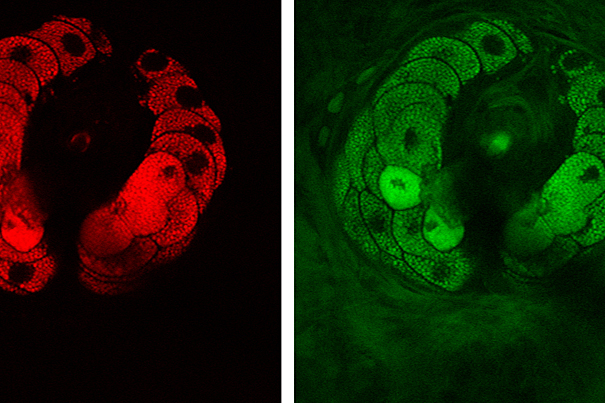
-
Keeping HIV out of the cradle
A Harvard School of Public Health AIDS Initiative trial that gave HIV-positive mothers in Botswana antiretroviral drugs during the months after birth showed a dramatic reduction in the transmission of the virus from mothers to breast-fed babies.
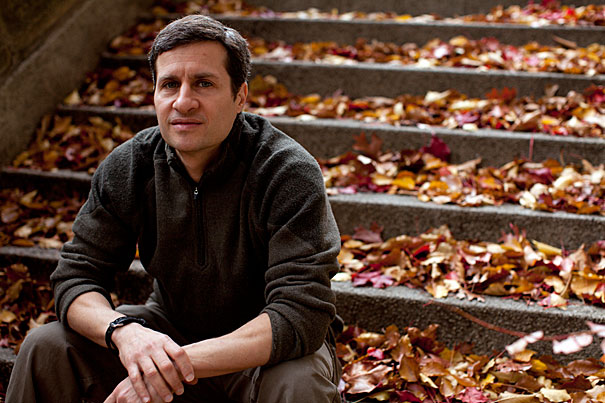
-
Life support for medical faculty
Shore Fellowships provide important breathing room for junior faculty members pressed by the demands of work and home life.
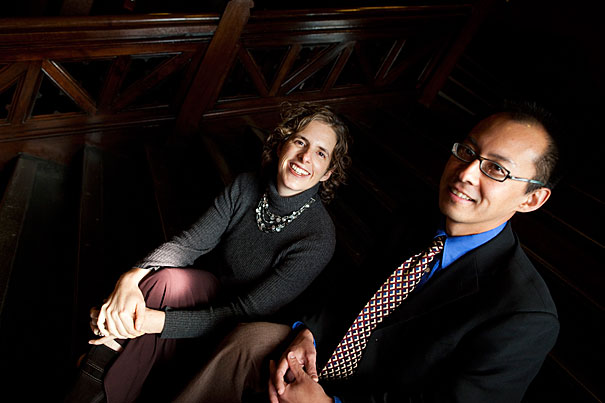
-
Major step in autism testing
Researchers at Harvard-affiliated McLean Hospital and the University of Utah have developed the best biologically based test for autism to date. The test was able to detect the disorder in individuals with high-functioning autism with 94 percent accuracy.

-
Partial reversal of aging achieved in mice
Harvard scientists at Dana-Farber Cancer Institute say they have for the first time partially reversed age-related degeneration in mice, resulting in new growth of the brain and testes, improved fertility, and the return of a lost cognitive function.
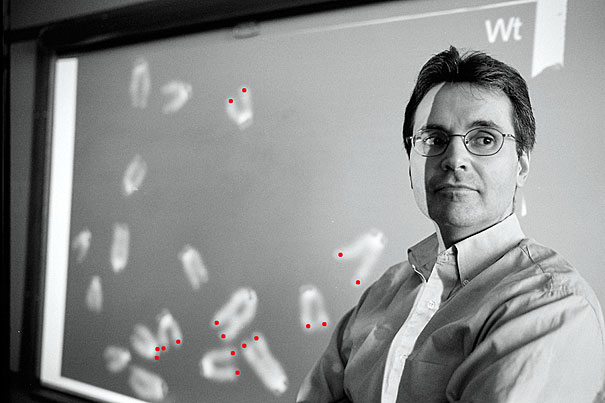
-
Critical finding for skin cancer treatment
Researchers’ findings pinpoint a critical gene involved in melanoma growth, and provide a framework for discovering ways to tackle cancer drug resistance.
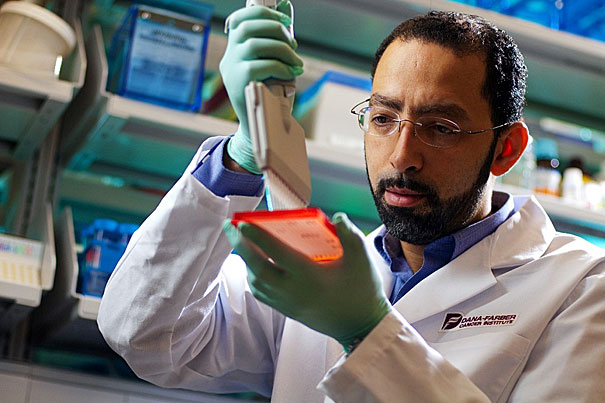
-
Helping Chinese with depression
A treatment model designed to accommodate the beliefs and concerns of Chinese immigrants appears to significantly improve the recognition and treatment of major depression in this typically underserved group.

-
Rare find
Researchers at Harvard Medical School and the Harvard School of Dental Medicine have found that by mimicking a rare genetic disorder in a dish they can rewind the internal clock of a mature cell and drive it back into an adult stem-cell stage.
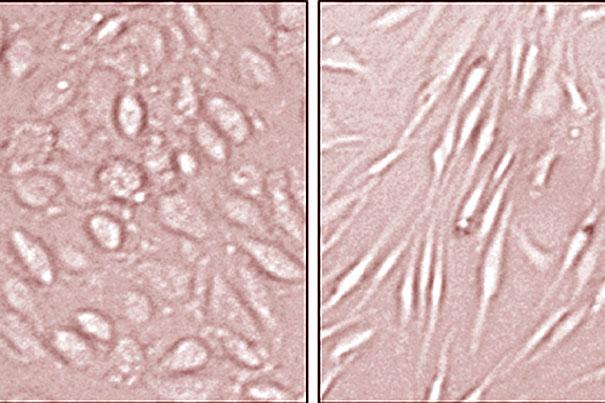
-
Biology researcher’s on a roll
Florian Engert, a new professor of molecular and cellular biology in Harvard’s Bio Labs, works and plays hard.

-
Probing the golden years
In an aging society, Harvard researchers are plumbing the depths of what it means to have a larger proportion of the population elderly — and figuring out how to keep them healthy.

-
Partnerships, training key to global health
Partnerships, training of local medical personnel, and practice in delivering services are all key if the effort to improve global health is to be successful, say speakers at the Massachusetts General Hospital Center for Global Health’s inaugural symposium.

-
Teeth marks
A sophisticated examination of teeth from 11 Neanderthal and early human fossils suggests that modern humans’ slow development and long childhood are recent and unique to our own species, and may have given early humans an evolutionary advantage over Neanderthals.
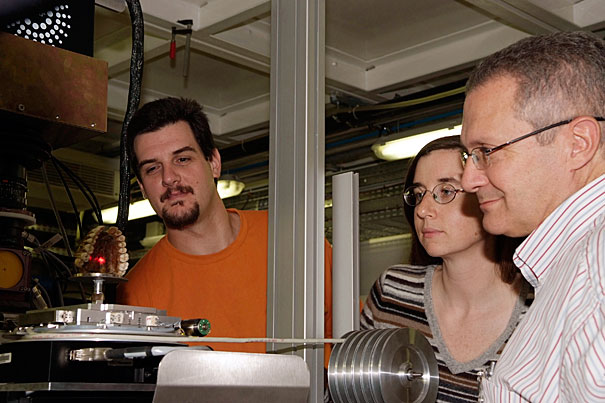
-
Early marijuana use a bigger problem
Researchers at Harvard-affiliated McLean Hospital have shown that those who start using marijuana at a young age are more impaired on tests of cognitive function than those who start smoking at a later age.

-
Promising therapy for stroke patients
A noninvasive electric stimulation technique administered to both sides of the brain can help stroke patients who have lost motor skills in their hands and arms, according to a new study led by researchers at Beth Israel Deaconess Medical Center.
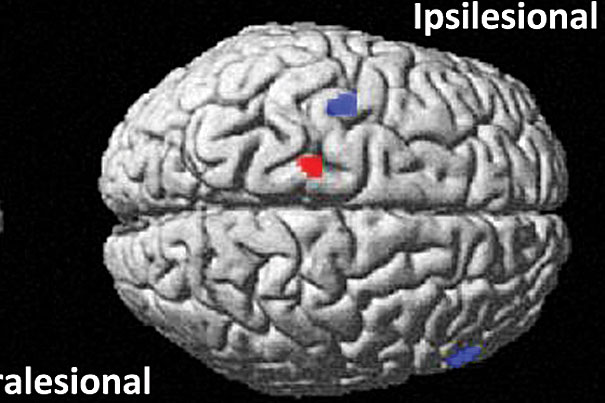
-
Wandering mind not a happy mind
People spend 46.9 percent of their waking hours thinking about something other than what they’re doing, and this mind wandering typically makes them unhappy, according to research by Harvard psychologists Matthew A. Killingsworth and Daniel T. Gilbert.

-
Hope for AIDS vaccine?
Progress on several fronts has raised optimism about the possibility of achieving an effective AIDS vaccine in the coming years, a speaker at the Harvard School of Public Health said Tuesday (Nov. 9).
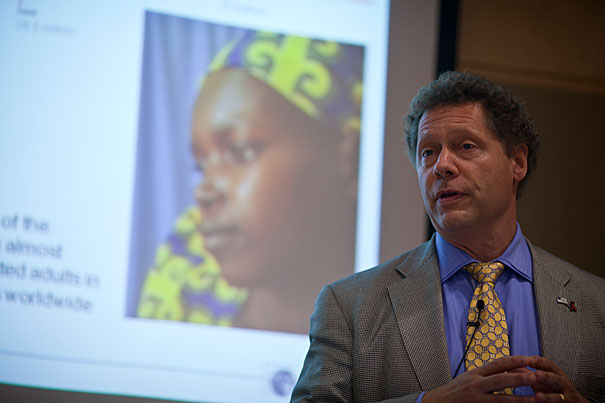
-
The rise of chronic disease
Heart disease, diabetes, and other chronic diseases are becoming enormous problems in the developing world and need more attention even as the challenge of fighting infectious diseases like AIDS shows no sign of abating, according to Institute of Medicine President Harvey Fineberg.

-
Tracking nanoparticles
Using a real-time imaging system, scientists have tracked a group of near-infrared fluorescent nanoparticles from the airspaces of the lungs into the body and out again, providing a description of the characteristics and behavior of the particles that could be used in developing therapeutic agents to treat pulmonary disease.
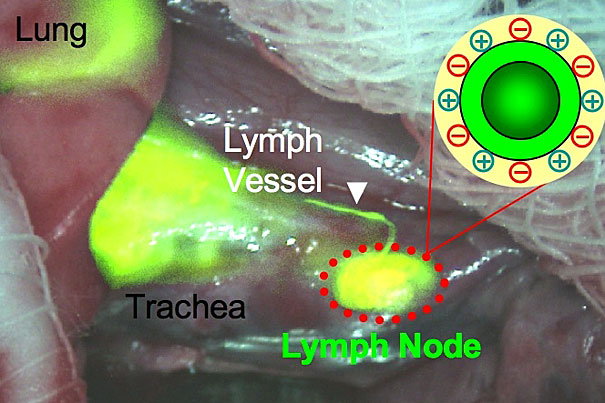
-
Where surgery is lacking
Authorities on global health and surgery gathered Nov. 5 to discuss how to address the lack of trained surgeons and adequate operating rooms in developing nations.
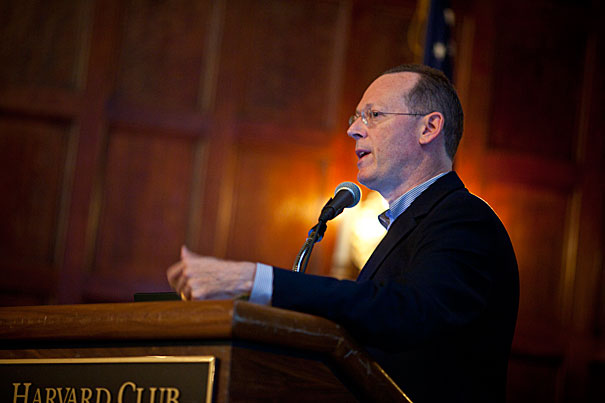
-
‘Another set of fingers’
An interdisciplinary group of leading Harvard geneticists and stem cell researchers has found a new genetic aspect of cell reprogramming that may ultimately help in the fine-tuning of induced pluripotent stem cells (iPS) into specific cell types.
